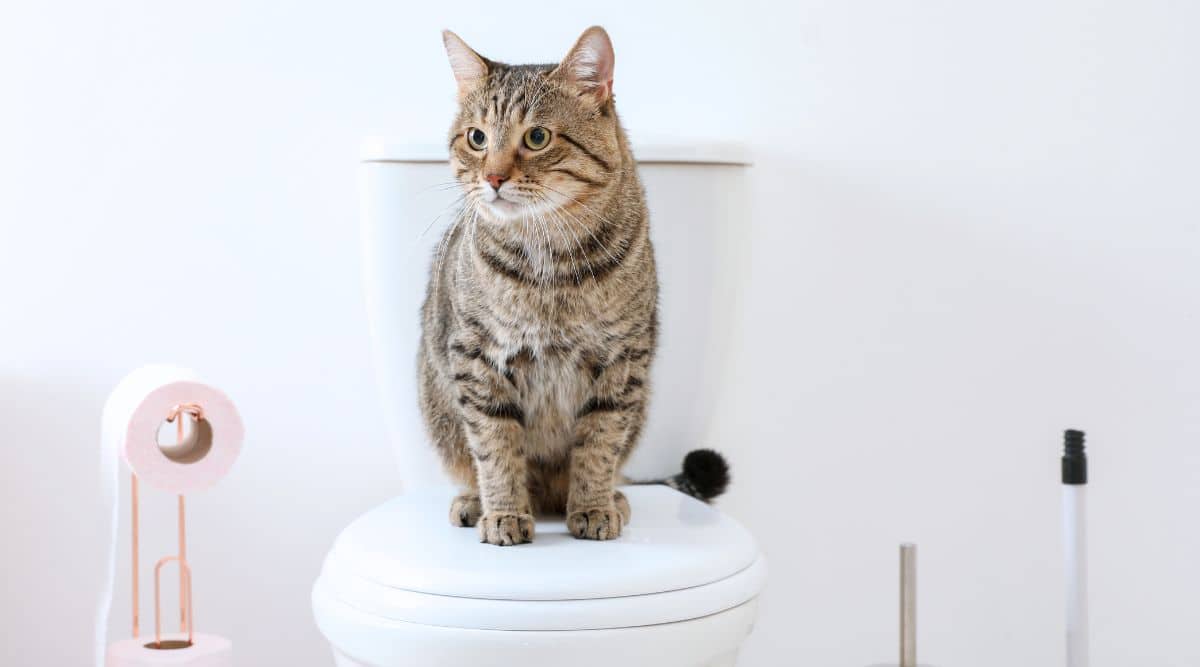Don't Flush Cat Poop Down Your Toilet - Maintain Your Home's Pipe System
Don't Flush Cat Poop Down Your Toilet - Maintain Your Home's Pipe System
Blog Article
On this page in the next paragraph you'll find some very good guidance regarding Don’t flush cat feces down the toilet.

Intro
As feline owners, it's important to bear in mind just how we get rid of our feline pals' waste. While it might appear hassle-free to flush cat poop down the toilet, this practice can have damaging effects for both the environment and human health.
Alternatives to Flushing
Luckily, there are much safer and more responsible methods to throw away pet cat poop. Consider the following options:
1. Scoop and Dispose in Trash
The most usual technique of taking care of cat poop is to scoop it right into a biodegradable bag and toss it in the garbage. Make sure to make use of a devoted trash inside story and deal with the waste immediately.
2. Usage Biodegradable Litter
Go with naturally degradable feline trash made from products such as corn or wheat. These litters are environmentally friendly and can be safely taken care of in the garbage.
3. Bury in the Yard
If you have a yard, take into consideration burying feline waste in a designated area away from veggie gardens and water resources. Make sure to dig deep sufficient to stop contamination of groundwater.
4. Set Up a Pet Waste Disposal System
Invest in a family pet garbage disposal system particularly made for feline waste. These systems use enzymes to break down the waste, lowering smell and ecological impact.
Wellness Risks
Along with environmental worries, flushing feline waste can additionally position wellness risks to human beings. Cat feces might include Toxoplasma gondii, a parasite that can trigger toxoplasmosis-- a possibly serious health problem, specifically for expectant ladies and people with weakened immune systems.
Environmental Impact
Purging cat poop presents dangerous pathogens and parasites into the supply of water, posing a considerable danger to aquatic ecosystems. These contaminants can adversely impact marine life and concession water high quality.
Conclusion
Liable pet dog ownership extends beyond supplying food and shelter-- it likewise includes appropriate waste management. By avoiding purging feline poop down the toilet and selecting different disposal approaches, we can reduce our environmental impact and shield human wellness.
Why Can’t I Flush Cat Poop?
It Spreads a Parasite
Cats are frequently infected with a parasite called toxoplasma gondii. The parasite causes an infection called toxoplasmosis. It is usually harmless to cats. The parasite only uses cat poop as a host for its eggs. Otherwise, the cat’s immune system usually keeps the infection at low enough levels to maintain its own health. But it does not stop the develop of eggs. These eggs are tiny and surprisingly tough. They may survive for a year before they begin to grow. But that’s the problem.
Our wastewater system is not designed to deal with toxoplasmosis eggs. Instead, most eggs will flush from your toilet into sewers and wastewater management plants. After the sewage is treated for many other harmful things in it, it is typically released into local rivers, lakes, or oceans. Here, the toxoplasmosis eggs can find new hosts, including starfish, crabs, otters, and many other wildlife. For many, this is a significant risk to their health. Toxoplasmosis can also end up infecting water sources that are important for agriculture, which means our deer, pigs, and sheep can get infected too.
Is There Risk to Humans?
There can be a risk to human life from flushing cat poop down the toilet. If you do so, the parasites from your cat’s poop can end up in shellfish, game animals, or livestock. If this meat is then served raw or undercooked, the people who eat it can get sick.
In fact, according to the CDC, 40 million people in the United States are infected with toxoplasma gondii. They get it from exposure to infected seafood, or from some kind of cat poop contamination, like drinking from a stream that is contaminated or touching anything that has come into contact with cat poop. That includes just cleaning a cat litter box.
Most people who get infected with these parasites will not develop any symptoms. However, for pregnant women or for those with compromised immune systems, the parasite can cause severe health problems.
How to Handle Cat Poop
The best way to handle cat poop is actually to clean the box more often. The eggs that the parasite sheds will not become active until one to five days after the cat poops. That means that if you clean daily, you’re much less likely to come into direct contact with infectious eggs.
That said, always dispose of cat poop in the garbage and not down the toilet. Wash your hands before and after you clean the litter box, and bring the bag of poop right outside to your garbage bins.
https://trenchlesssolutionsusa.com/why-cant-i-flush-cat-poop/

Hopefully you enjoyed reading our piece on How to Dispose of Cat Poop and Litter Without Plastic Bags. Thanks a lot for taking time to read through our content. For those who enjoyed reading our blog posting if you please be sure to pass it around. We recognize the value of reading our article about Don’t flush cat feces down the toilet.
Request Estimate Report this page